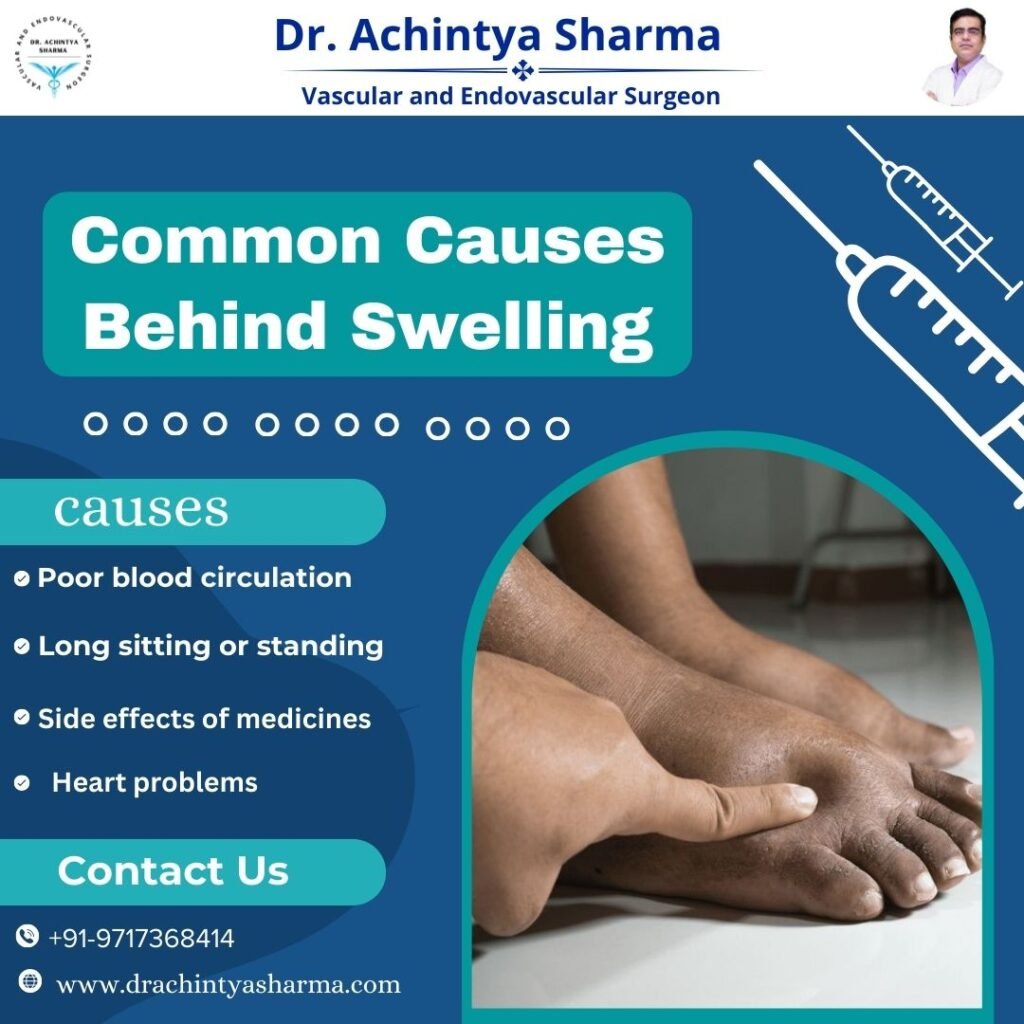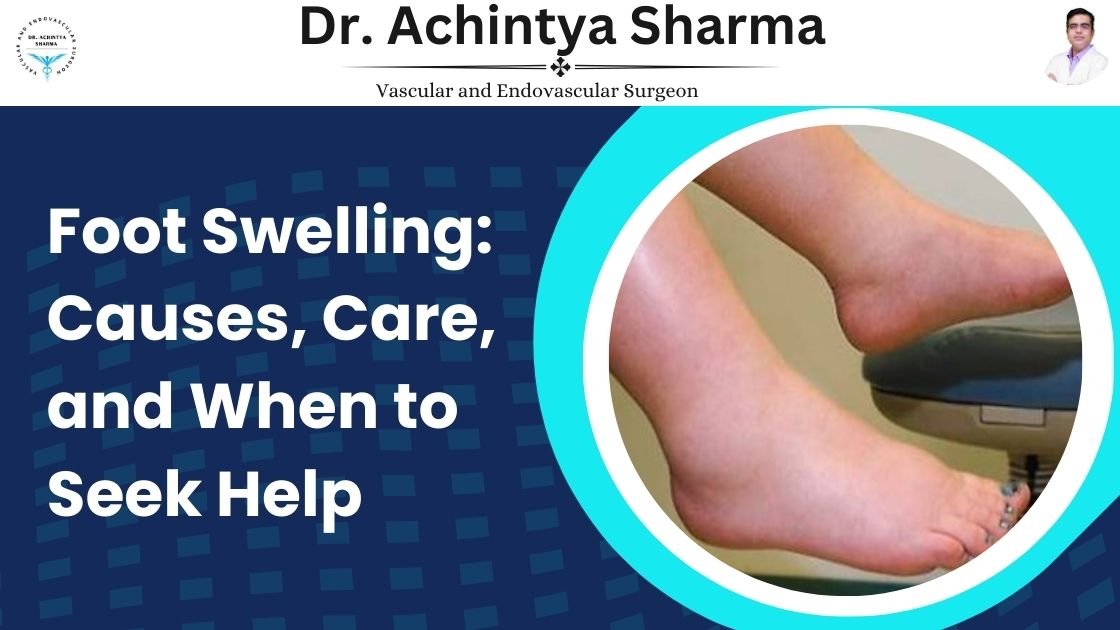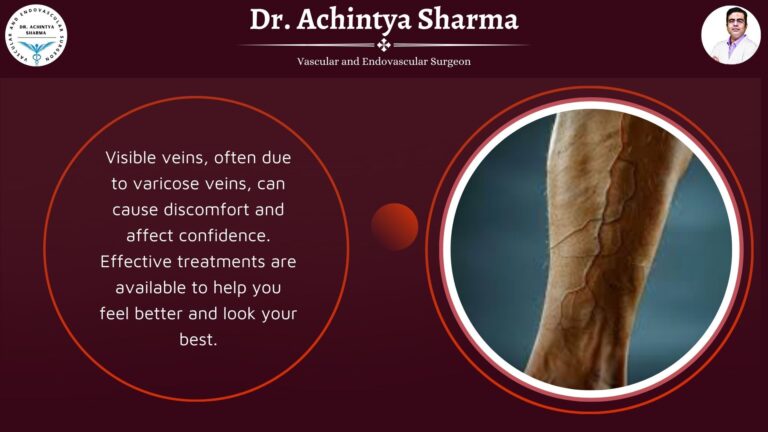Foot swelling is a problem that many people notice in daily life. Sometimes it happens after long standing, walking, or traveling. At other times, it appears without a clear reason and may last for days. While mild swelling may go away with rest, frequent or painful swelling could point to health issues that need attention. Since our feet carry the entire body weight, even small changes should not be ignored. This blog explains the common causes of foot swelling, practical home remedies, lifestyle habits to prevent it, and when to consult a specialist for expert guidance and long-lasting relief.
Why You Should Care About Foot Swelling
Your feet are the base of your body. When they swell, they don’t just cause discomfort but also reduce mobility and daily comfort. Many people dismiss it, thinking it is just tiredness. But swelling can sometimes signal deeper problems like poor circulation, vein conditions, or organ disorders. Ignoring it may delay treatment and increase health risks. Think of swelling as your body’s early alarm system. Acting on it in time ensures you stay healthy, active, and pain-free. Paying attention to these signals can protect your long-term well-being and prevent complications before they become serious.
Common Causes Behind Swelling

Swelling in the feet has many possible causes. Some are temporary, while others may need medical attention. Common reasons include:
- Prolonged standing or walking – Extra pressure makes feet and ankles swell.
- Injury or trauma – Sprains, fractures, or minor accidents trigger swelling.
- Pregnancy – Extra fluid and hormonal changes make it common.
- Medications – Some blood pressure or steroid medicines cause fluid retention.
- Vein problems – Varicose veins and poor circulation, poor blood circulation
Understanding the trigger helps decide the right care or treatment.
Simple Remedy—Raise to Reduce Swelling
The good news is that many cases improve with simple home steps. These are easy to follow and safe for daily life:
- Elevate your feet—raise them above heart level for 20–30 minutes.
- Stay active—walking and stretching help blood flow.
- Drink more water—proper hydration balances fluids.
- Cut down on salt—high salt intake worsens swelling.
- Wear supportive shoes—avoid tight shoes and long use of heels
- Compression socks—improve circulation and reduce heaviness.
- Massage and cold packs soothe discomfort and provide quick relief.
These habits bring relief, but persistent swelling needs medical advice.
When to Consult a Specialist
Not all swelling is harmless. Warning signs include sudden swelling, pain, redness, or swelling in only one foot. These may point to blood clots or vascular problems. At this stage, expert help is essential.
Dr. Achintya Sharma, a trusted vascular and endovascular surgeon, specializes in treating circulation-related conditions that often cause swelling. With advanced diagnostic methods and patient-focused care, he helps people get timely solutions and avoid future complications. Consulting early not only reduces discomfort but also safeguards long-term health. Don’t wait for the problem to limit your life—seek the right guidance at the right time.
Preventive Lifestyle Habits
Prevention is always better than cure. Along with home remedies, small lifestyle changes help reduce the risk of swelling:
- Maintain a healthy weight to reduce pressure on feet.
- Follow a balanced diet with vegetables, fruits, and fiber.
- Take regular breaks during work to stretch.
- Practice ankle rotations and calf raises for circulation.
- Wear comfortable footwear designed for daily use.
Check-ups - Get regular health checkups if you have chronic conditions.
check-ups
These steps not only prevent swelling but also improve overall fitness and energy.
Frequently Asked Questions (FAQ)
1. What causes foot swelling?
It may happen due to long-standing injuries, pregnancy, medications, vein issues, or health conditions like kidney and heart problems.
2. Is foot swelling always serious?
Not always. Some cases are harmless and go away with rest. But sudden or painful swelling should never be ignored.
3. How can I reduce swelling at home?
Elevate your feet, stay active, stay hydrated, wear proper shoes, and reduce salt intake.
4. When should I see a doctor?
If swelling is sudden, one-sided, or comes with pain and redness, consult a specialist like Dr Achintya Sharma for expert evaluation.
Conclusion
Foot swelling may seem minor, but it can reveal a lot about your health. Sometimes it occurs from simple causes like standing too long, while in other cases it signals circulation or organ-related problems. Mild swelling often improves with rest, hydration, and lifestyle changes. But persistent or painful swelling should never be ignored. Timely expert advice ensures safety and long-term relief. With proper care and guidance from specialists such as Dr Achintya Sharma, you can manage swelling effectively and enjoy healthier, more active days. Remember, healthy feet are essential for balance, comfort, and overall well-being.




